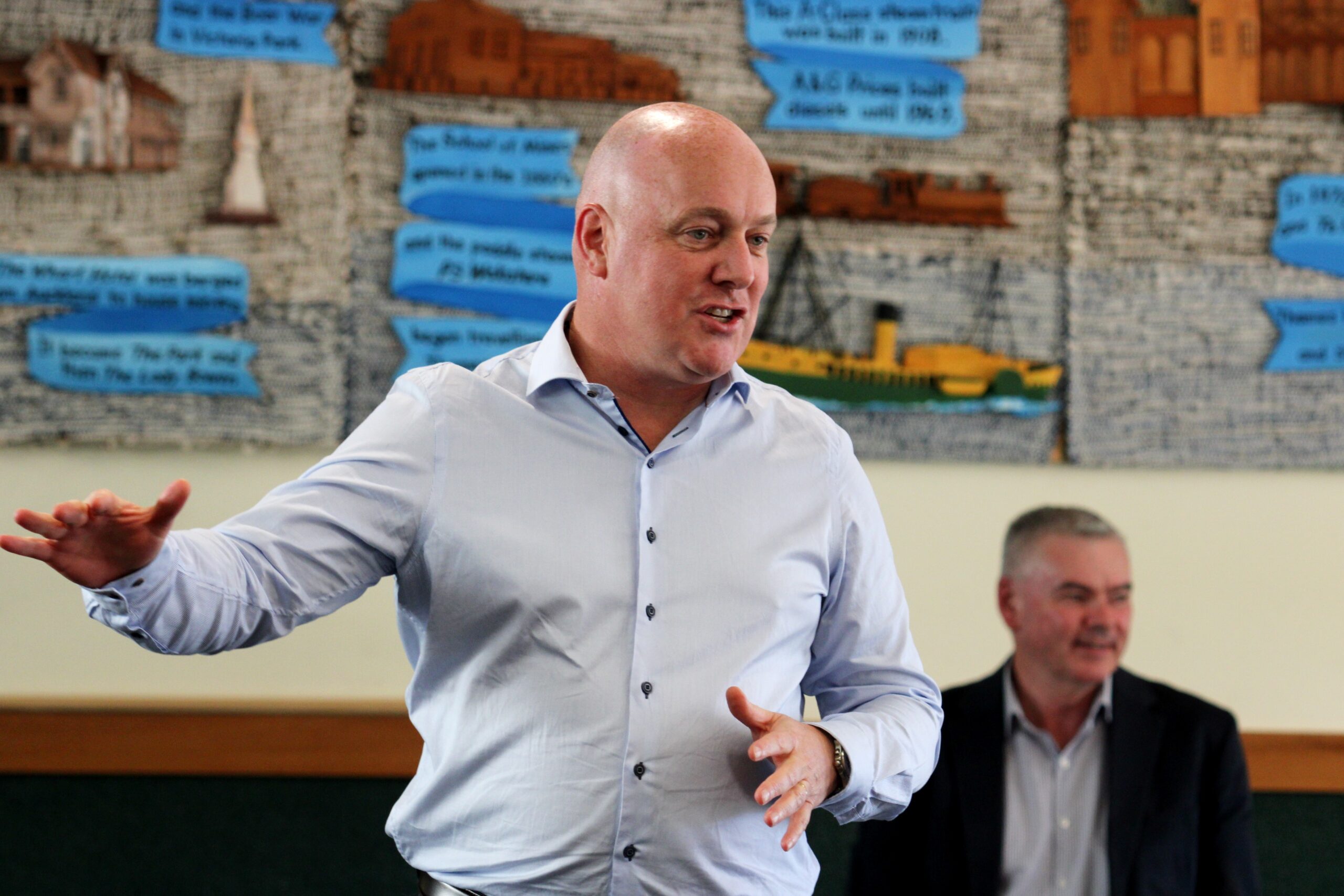Farmers have been treated as villains, National Leader Christopher Luxon said, and he wants that attitude to change.
His party has also promised “sweeping changes to farm regulations” if successful in this year’s election.
The Leader of the Opposition was in Thames recently for a public meeting co-ordinated by Coromandel MP and National Party environment spokesperson Scott Simpson.
One of the very first questions for the hopeful Prime Minister was from an ex-dairy farmer concerned by the negativity surrounding the agriculture industry, including insinuations it was responsible for poor water quality in New Zealand.
“Farmers are being treated as villains,” Mr Luxon said in response. “You are not villains. You should be deeply, deeply valued. Why? This is a sector that got us through the GFC [Global Financial Crisis], it got us through Covid. We’ve now got the economy shrinking and [the agricultural sector] is going to be the backbone that gets us through this recession.”
Mr Luxon said there was “nothing better than agriculture” for Aotearoa, and that it was a fantastic industry being burdened by masses of regulation.
“When I talk to farmers, 30 per cent of their week now is spent managing all the paperwork and all the compliance and all the costs. Often, on the same day, they’re going to lots of different sources: councils, governments, MPI, all over the place.
“We’re going to have a cup of tea and actually stop, assess, and really think through that regulation, because at the moment, it’s like playing tennis with ten tennis balls coming over the net – you can’t hit all ten at the same time.”
Former Thames-Coromandel Mayor and National Party MP Sandra Goudie also attended the meeting and asked Mr Luxon if his party would consider “putting food production into our school curriculum, starting at kindergarten”.
“Because food producers are our biggest export earner and I’m tired of seeing them being used as a political football,” she said.
Mr Luxon agreed. He told the crowd inside Thames’ Civic Centre that 65 per cent of New Zealand’s export earnings came from food and fibre production.
However, young people needed to learn “the basics” in order to get a foot in the industry.
“When I talk to employers across a range of sectors, they say they employ someone straight out of high school and they’re not work ready because they haven’t got a basic level of numeracy and literacy that you need to even have a conversation about food production,” he said.
“If we get the basics right, I think that has a whole bunch of flow-on effects.”
The National Party last week announced a new Getting back to Farming package, which would improve access to workers, restore local decision-making, and protect food production.
The package would introduce a “2-for-1 rule” for the next three years: for every new regulation that central or local government wants to introduce on the rural sector, they must take away two.
“This is about using targeted rules with clear environmental limits so farmers can work with
confidence,” Mr Simpson said in a statement.
“National is committed to this country’s climate change goals. We know shutting down some
of the world’s most carbon efficient farmers only sends production to less efficient farms overseas and could raise global emissions.
“We can protect the environment and allow farmers to get on with business by reining in the
bureaucracy and using clear, well-targeted rules instead.”

National Party Leader Christopher Luxon was in Thames to talk about the economy, farming, and local roads.
PHOTO: KELLEY TANTAU
Luxon: Attitude change on farming needed




